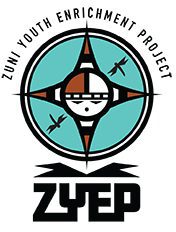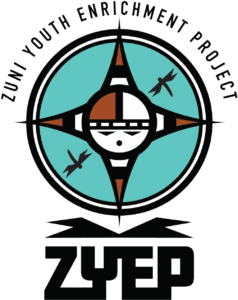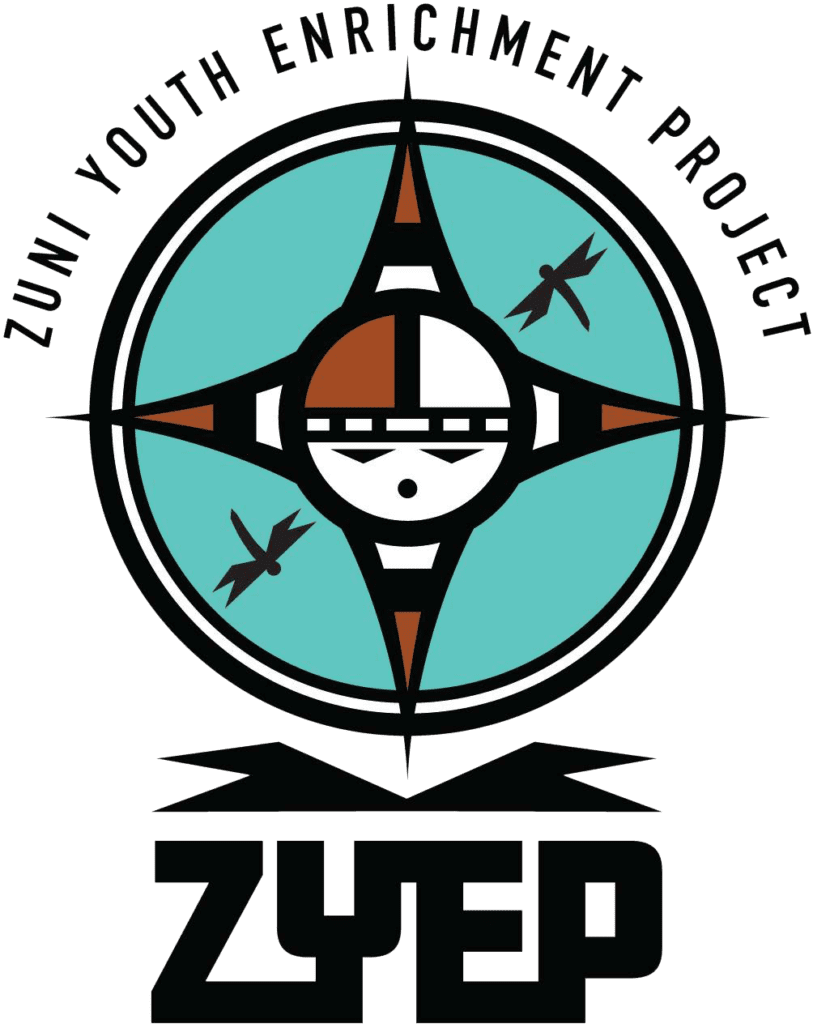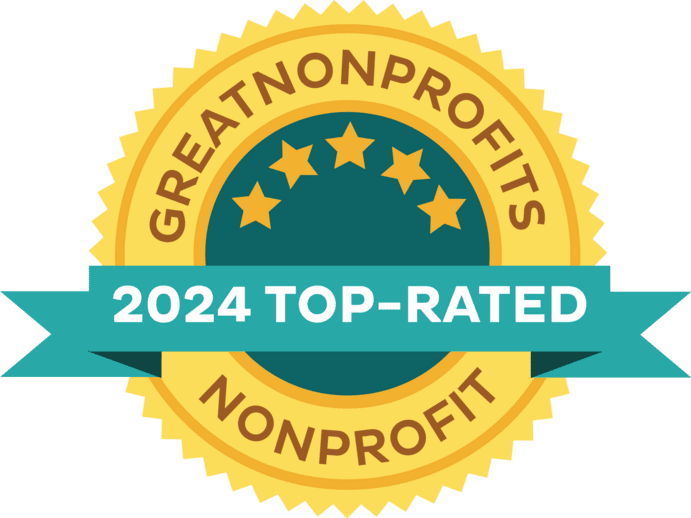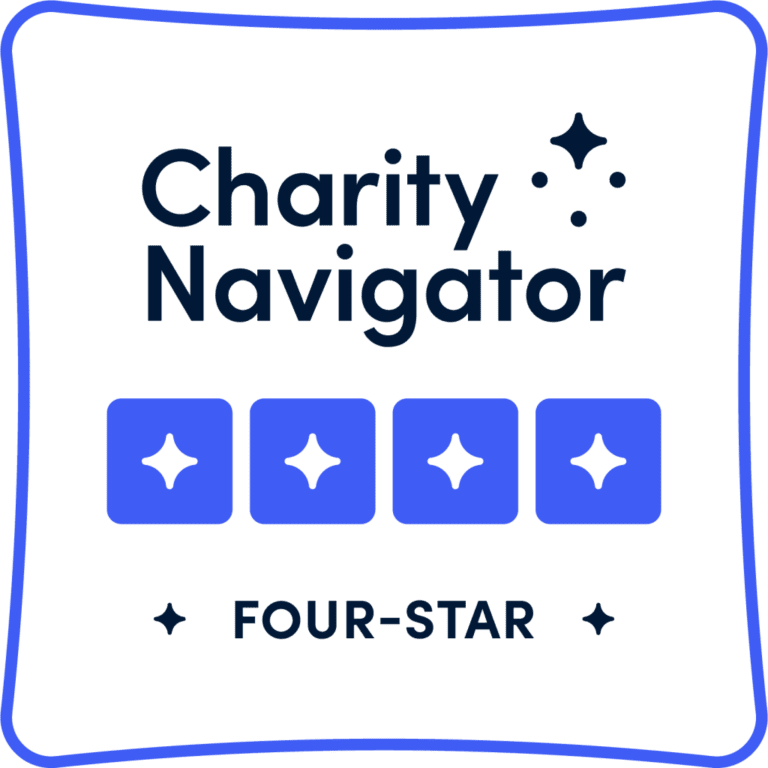ZUNI, NM (Oct. 31, 2024) — Earlier this month, the Zuni Youth Enrichment Project took eight youth participants on a camping trip in Grand Canyon National Park, an important ancestral site for the Zuni people. ZYEP Youth Development Coordinator Kiara “Kiki” Zunie, Operations Manager Josh Kudrna, and cultural advisor Enric Tsalate chaperoned the trip, which took place on Oct. 11-14 and was made possible with support from the National Park Foundation and the 11th Hour Project, a program of the Schmidt Family Foundation.
During the three-night trip, participants had opportunities to learn about Grand Canyon, engage with National Park Service staff to understand their work as well as potential NPS career pathways for young people, gain new perspectives of Zuni history and culture, and discover how representation and belonging can be achieved through simply showing up. In this sense, says Kudrna, ZYEP’s camping trips are about so much more than camping.
ZYEP’s camping trips are unique in this way, according to Kudrna. While the youth certainly do build their camping and backpacking skills, he said, “there are a lot of intentions baked in,” underscored by the youth project’s vital relationship with the National Park Foundation and Grand Canyon National Park.
“These partnerships are allowing us to take time to foster a positive and dynamic relationship between the young people of Zuni Pueblo and their sacred place of origin, with great hopes for what that can mean in the future,” Kudrna explained. “It might sound like a lot is being packed into just a few days, but we center and structure the days around a concept known in outdoor experiential education as ‘letting the mountains speak for themselves.’”
This more-is-less approach embraces the idea that simply being present can have a more profound impact than a structured lesson could hope to match — and that structured activities might even actively take away from that experience. During the ZYEP-led camping trips, NPS staff and Zuni cultural advisors share their knowledge and stories to provide context, but the itineraries incorporate enough breathing room to give participants a chance to absorb the information and then ground themselves in a deep, abiding sense of place.
“We want our Zuni youth to see themselves as people who belong in these special ancestral sites, and also to see themselves working with them,” Kudrna said. “Trips like this one provide some baseline experience and give them the comfort to do so as they see fit.”
Upon arrival at Grand Canyon National Park on Friday, Oct. 11, the ZYEP group set up camp, explored the park centers and enjoyed dinner and discussion time together. The next morning, they traveled to the South Kaibab Trailhead and hiked 6.8 miles to the bottom of the canyon, where they spent the night at the Bright Angel Campground.
“This was our first time running a camping trip here in the fall, as opposed to our usual time in the spring,” Kudrna reflected. “Between that and how unseasonably warm it has been this autumn, it was much warmer in the canyon than during previous trips. Temperatures were in the mid-90s during the day and played a huge role in how we went about our hikes to keep everyone safe.”
All eight youth participants were first-time backpackers, so it was a new experience to carry everything they would need on their backs. Over the course of the trip, they learned how to identify what gear and supplies are essential versus what is not, how to take care of themselves and each other, and how to persevere when the only way out is up.
On Sunday, Oct. 13, the group spent the morning connecting to their space and enjoying breakfast and lunch together. Next, they hiked several hours to the Havasupai Gardens Campground, where they spent their final night; on Monday, Oct. 14, they hiked out of the canyon and returned to Zuni.
“We made it!” Kudrna said. “We were extremely fortunate that two NPS staff, Tribal Program Coordinator Kelkiyana Yazzie and a backcountry ranger named Kate, hiked with us. They taught us about the canyon’s history, ecology and tribal initiatives, their work experiences, as well as the available internships and work opportunities. Our youth got to know them and were able to ask questions, and they asked us questions about Zuni too.”
Tsalate, the group’s cultural advisor, took advantage of moments when the participants were sitting together for meals or a rest stop to share his own stories and knowledge. He also led the group in providing their offerings and prayers to the ancestors, who are still present within the canyon.
Grand Canyon has been home to 11 tribes for generations, which means it is more than a national park, a World Heritage Site and a natural wonder of the world. It’s a sacred space for entire peoples: Havasupai, Hualapai, Hopi, Yavapai-Apache, Kaibab band of Southern Paiute, Las Vegas band of Southern Paiute, Moapa band of Southern Paiute, Paiute Indian Tribes of Utah, San Juan Southern Paiute Tribe, and Zuni.
To learn more about the Zuni Youth Enrichment Project and its programs, and for information about making donations, partnering with ZYEP, and volunteering, call (505) 782-8000 or visit zyep.org. And, to stay up to date on the latest news and events, follow the nonprofit youth organization on Facebook (/zuniyouthenrichmentproject), Instagram (@zuniyouthenrichmentproject), YouTube (/ZuniYouth), and TikTok (/zyep09)
Founded in 2009, the nonprofit Zuni Youth Enrichment Project is dedicated to promoting resilience among Zuni youth so they will grow into strong, healthy adults who are connected with Zuni traditions. ZYEP fulfills its mission by providing positive role models, enriching programs, and nurturing spaces that contribute to the healthy development of Zuni youth. ZYEP strives to provide every child with the encouragement and opportunities they need to reach their full potential.

